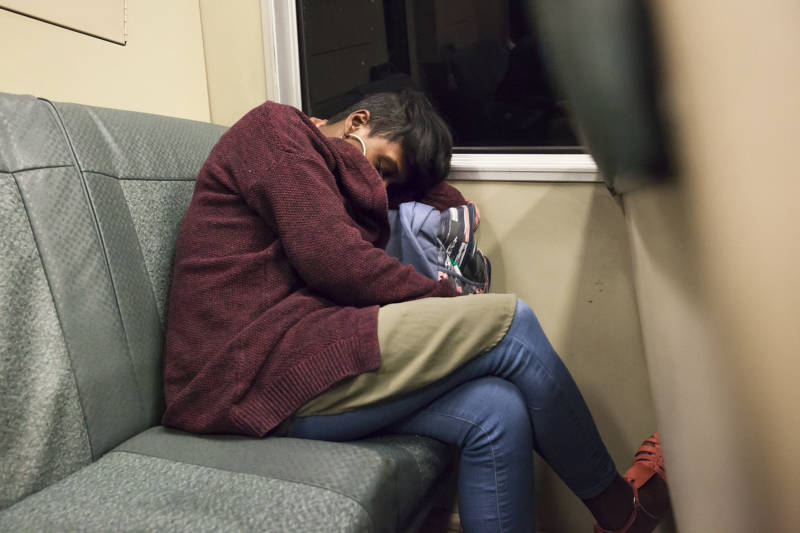If signed into law, the overnight parking legislation would apply to any homeless student who is enrolled in classes and is in good standing with their community college. Schools would have until next summer to roll it out.
For Lopez, the plan would make a big difference. She said having a stable place to stay every night surrounded by other students who share her predicament would be a big improvement.
“It would remove a little bit of that fear,” said Lopez (we’re using her middle name to protect her privacy). “I really hope that it is passed.”
She likes the idea of creating community with other homeless students and said the peace of mind would help them focus on school.
“We would know that we have a safe place to go,” she said, “and not have to worry about where to park, where to sleep.”
But the bill creates another set of worries for the man at the helm of Lopez’s community college.
“I wouldn’t want someone to stay here and some sort of crime takes place and they’re hurt,” said Evergreen Valley College President Keith Aytch. “That would be my biggest, biggest concern.”
Aytch said there were many logistics to consider. For starters, he’d have to hire security guards, set up some portable bathrooms and partner with outside groups that can help connect students with resources. He would likely also ask students to sign liability waivers before allowing them to sleep on campus grounds, and he worries about how homeowners around the campus would respond. “Will it impact property values?” he asked.

